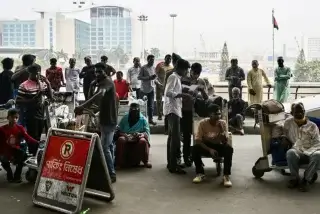Netherlands Granted Over 20,000 Work Permits to Non-EU Migrants & Asylum Seekers in 2024

Amsterdam, 2025 – The Netherlands issued 20,172 work permits to migrants and asylum seekers from non-EU countries in 2024, according to new data from the state employment agency UWV. These figures exclude highly skilled migrant workers, whose permits are issued separately by the Dutch Immigration and Naturalisation Service (IND).
According to Schengen.News, this marks a 12% increase compared to 2013, highlighting the country’s growing dependence on foreign labor to sustain its economy.
Work Permits for Asylum Seekers Quadrupled in 2024
One of the most striking increases was among asylum seekers, who received 9,281 work permits in 2024—four times more than in 2023.
This surge followed the removal of a restriction that previously limited asylum seekers to working only 24 weeks per year. After this rule was lifted in late 2023, a significantly higher number of asylum seekers sought full-time employment, particularly in hospitality and agriculture, where labor shortages remain critical.
Work Visa Rules for Low-Skilled Workers & Potential Implications
Unlike highly skilled professionals, who receive work permits from the Dutch Immigration and Naturalisation Service (IND), Dutch companies hiring low-skilled non-EU workers must obtain permits through UWV.
With a sharp increase in UWV-issued work permits, some experts warn of potential labor shortages deepening across various sectors.
Labor Shortages Will Persist, Expert Says
According to Leontine Treur, a labor market specialist at Rabobank, the Netherlands’ tight labor market is expected to persist in the coming years.
“We have a tight labor market, and that will remain so in the coming years. This keeps the demand for labor migrants high.”
Treur emphasized that the Netherlands has a low unemployment rate, meaning domestic workers alone cannot fill all job vacancies, leaving employers increasingly reliant on foreign labor.
Despite ongoing debates on migration policies, labor shortages continue to push the Netherlands towards easing work regulations for foreign workers.








